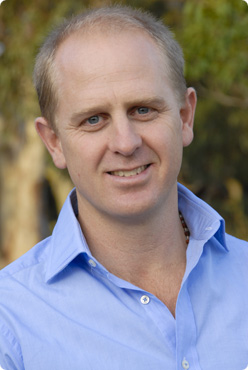Note: this post has been updated. I follow the “vedic style” of meditation, not the transcendental style, or TM. There isn’t a lot of difference, but there is enough to cause contention and confusion. I’ve corrected this post to reflect things more accurately.
I’ve tried just about every form of meditation. None of them really stuck. I used to get stupendously tense meditating, often reduced to tears…that’s how much they failed to “stick”. About two years ago I tried vedic meditation. I’ve said this before: when I get three reminders of something, I strike. That is, if three people mention the same thing to me, out of the blue, then I know I need to take note. And act. Which is what happened with meditation.

When the third person mentioned teacher Tim Brown to me, I signed up. I was down the beach at 5am, having not slept at all, distraught and lost. I was going through a grey time in my life. A random guy called Tom who I recognised from yoga came up to me, gave me a hug and said, “You’re in a tough place”. We met for tea that night and Tom talked up meditation and Tim.
I find meditation is generally presented to people in this way. Perhaps this post will be what touches you, it will be your third strike?
Meditation very literally Changed. My. Life. Tim promised it would. I was skeptical. But six weeks after I started, I landed the MasterChef gig. I meditated in the car outside before going in for my audition. The casting team said my certainty and poise got me the job.
There you go.
The vedic meditation deal in a few dot-points:
* VM works like this: you sit in a chair (no need for crossed legs) with your eyes shut for 20 minutes, twice a day. You repeat a mantra in your head that your teacher gives you over and over. You repeat it gently – you don’t “shout it”.
* If your mind wanders, you gently steer it back to the mantra. Always back to the mantra. That’s all you have to do. The mantra is designed to do the rest. It “drags” your consciousness down, down, down. The teacher chooses a mantra with a vibration that suits you.
* I meditate after exercise in the morning (my body is more open, which helps go deep), often down at the beach in the morning sun. At night I do it before I go out/have dinner. It’s great to shower first because when you meditate you produce an oil on your face which is REALLY good for your skin and has been shown to make you look younger….
* VM has been scientifically proven to be up to five times deeper than sleep. 20 minutes of meditation is equivalent to 3 to 4 hours sleep.
* I don’t fret about where I do it. I do it on planes, in my office, in my car. In fact, the more “inappropriate” the place, the better. The slight discomfort makes me focus more. I’ve written about this before, the idea of finding happiness “in spite of” mess or pain or chaos.
* When I was hosting MasterChef I used to meditate in the toilet cubicle (the only place I could get some peace) while my curlers set. On Mondays at Sunrise, I meditate in the wardrobe. No one seems to have a problem with this…I don’t think (!?).
* Catalyst on ABC ran a feature last week: Transcendental Meditation: Hocus-pocus or healthy practice? Worth a watch.
* VM costs about $1000 – for a course over 3-4 nights. Once you’ve been “initiated” you can then attend weekly group meditations for free. I reckon this is great value. For Tim, like all VM teachers, teaching meditation is his career. He has a family to feed. He’s not a monk sitting in a cave living off donations. Yep, you can learn meditation for free by volunteers. But – and this is an odd concept – I think the act of handing over $$$ for the service makes people like me respect the service more, and apply myself more fully to it. Hey, it’s the world we live in!
This is what meditation feels like (for me):
* You know that sucking feeling when you stick a Mac powercord in the socket? That’s how it feels when you slip into the meditative state – like it all fits snugly, nothing is missing, things are firm and certain.
* Sometimes I feel my body expanding, like I’m the Michelin man. This is, apparently, my consciousness expanding beyond the experience of my body. Other times my head spins around on it’s own. Some people collapse forward on to their laps.
* Mostly, meditating is a jittery, thought-filled experience. BUT, the important thing is that when I come out of it after 20 minutes I’m 2938473 times calmer. This is what counts. Not what you do in meditation, but what happens after. Everything feels sweeter.
The three things I dig the most about vedic meditation:
* The soukshma/sookshma principle: while repeating the mantra, practice soukshma, which- as Tim teaches – roughly means innocent, faint and effortless. That is, come to the mantra innocently, faintly and effortlessly. This, for me, is the beauty of VM…it instills soukshma into your very being. So that out of meditation, the innocence, gentleness and effortlessness continues. It imbues. Infuses.Soukshma, soukshma, soukshma…!
* Thoughts are good: It doesn’t matter if your mind starts chattering. Thoughts are little bubbles of tension that surface as we sink deeper. Thoughts release tension. They are good. They also remind us to return to the mantra. Thought pops up; cue “return gently to the mantra”. This constant steering things gently back to the mantra is key. Because, when you return to real life out of meditation, it sets you up to gently steer things to calmness whenever your mind gets cluttery. It’s practice. It flexes a “steer to calm” muscle.
* It’s just stringent and organised enough: I’ve stuck with VM because I belong to a community that sticks to it. We meet every Monday night just to meditate and chat. I see VM’ers around town, meditating down at the beach and in parks. Feeling like I belong to a crew of meditators makes me do it twice a day. A bit like living in a society where brushing your teeth day and night is normal, expected. So you just do it.
* It makes me look younger. I know this is vain, which is not very balanced of me, but HTG (honest to God), part of the appeal of VM is it’s anti-aging properties. My skin has changed over the past two years. The muscles on my face have released, relaxed and opened up. HTG.
Tim Brown with a nice anecdote about meditation:
Meditation is not about withdrawing from life but learning how to access that space within oneself where we are able to enjoy the experience of life without being overwhelmed or consumed by it.
It’s a bit like when you go to the movies, get there late and get stuck in the front row. The screen is in your face and difficult to watch and the sound is way to loud. Far from having to leave the cinema all we need to do is get back a few rows.
Now we don’t want to go to the back of the cinema, that is no good as then the screen is too far away and the sound quality is poor – this is no more satisfying than being in the front row.
The ultimate place is in the middle of the cinema. That’s where the screen is at the right distance and the surround sound is the best. You can sit and be taken and engaged by the movie while still maintaining an awareness of yourself in the seat. This is what we call the “Goldilocks Phenomenon” – not to hot, not to cold, just right – or not to close to the experience to be consumed by it, not to far away so as to be disconnected from it, but just right in the sweet spot where the experience is engaging without being all consuming.
This is what we are looking to achieve through meditation. The rigors and dynamics of day to day living are drawing us further and further into the business of life which is causing us to become too enmeshed in it – as a result the experience becomes overwhelming and uncomfortable. This is the basis on which people find life stressful and all consuming, it is the basis for all suffering, discomfort and dis-ease.
This is exactly what meditation, or the “art of transcending” is all about – “moving beyond” ones current experience and gaining a greater perspective on the whole of one’s experience – this is what I call “conscious altitude” and it makes all the difference to being able to see things in context and brings greater stillness, clarity, creativity, energy, intelligence to the mind and prints out in the body as greater physical wellbeing.It’s not rocket science, and it’s been know for thousands of years how to trigger this response in the mind and body and the importance of doing so. The pressures of modern day living is causing people to reinvestigate meditation as an option – much to the benefit to themselves, those around them, their society, their country and their world – thank goodness!
Tim is based in Paddington, Sydney. You can contact him here.
Tim also lists other VM teachers in Australia, America, UK and NZ.
David Lynch on meditation:
Are you a meditator? What’s your favourite, or “sweetest” observation about being in a meditative state?


